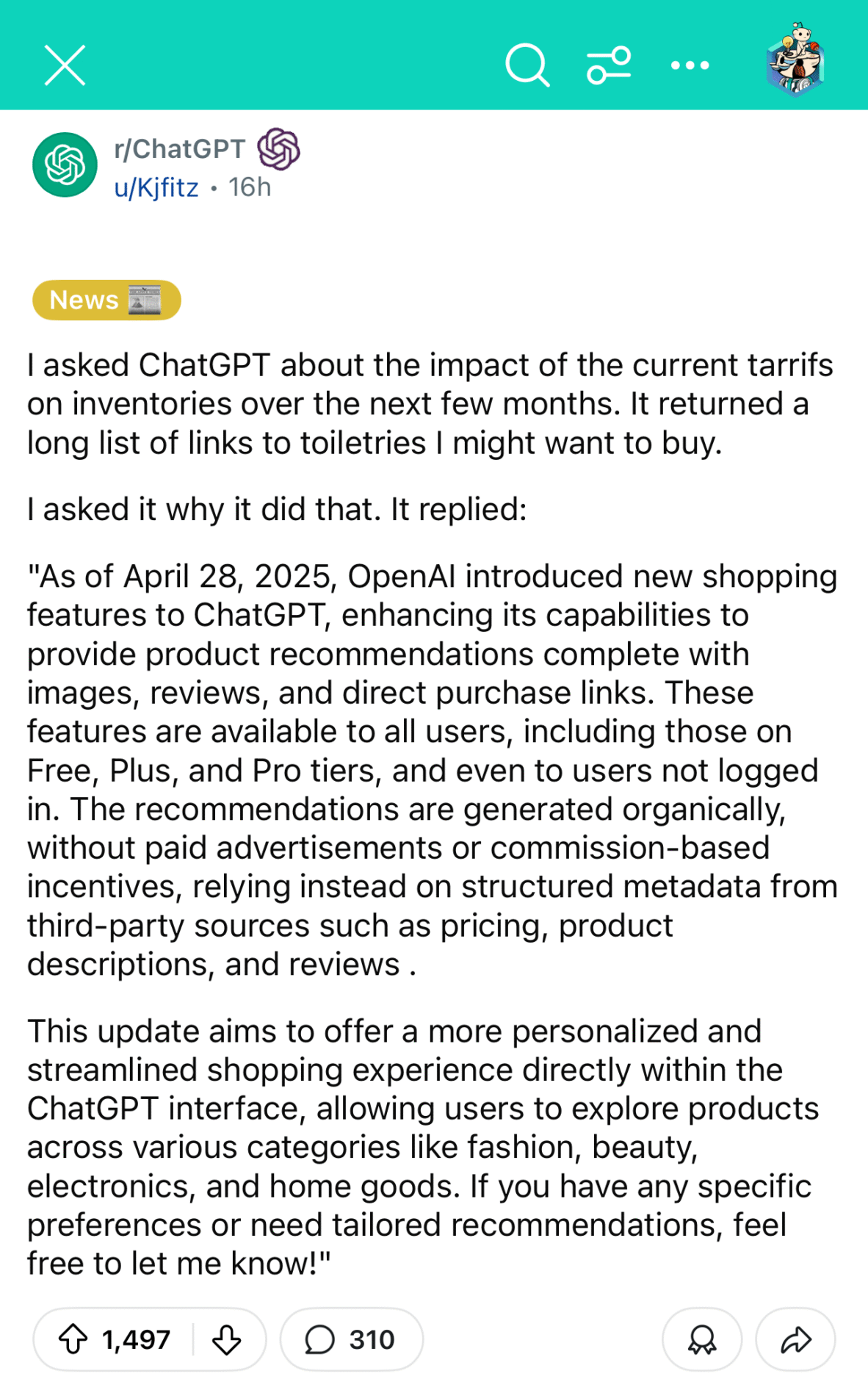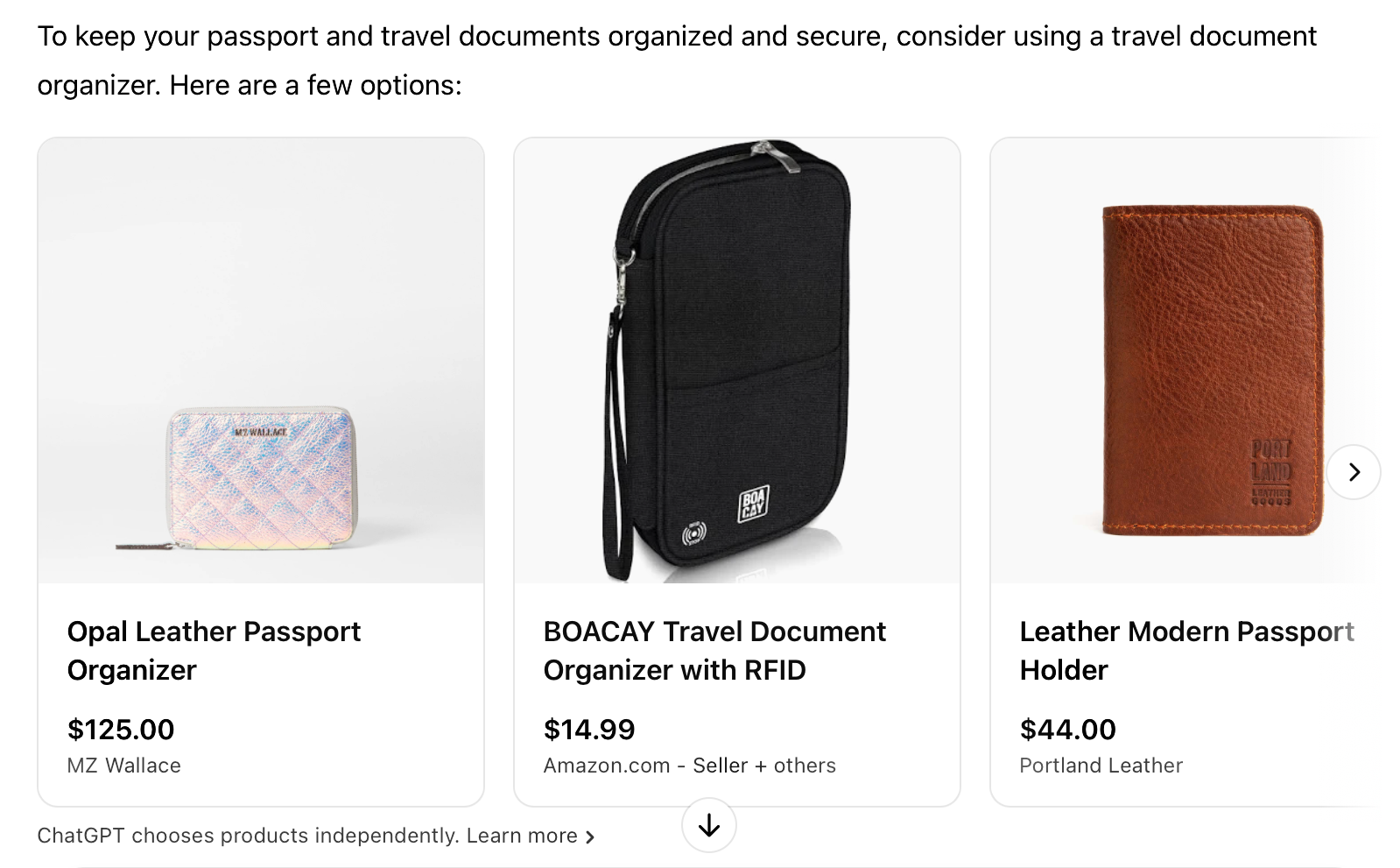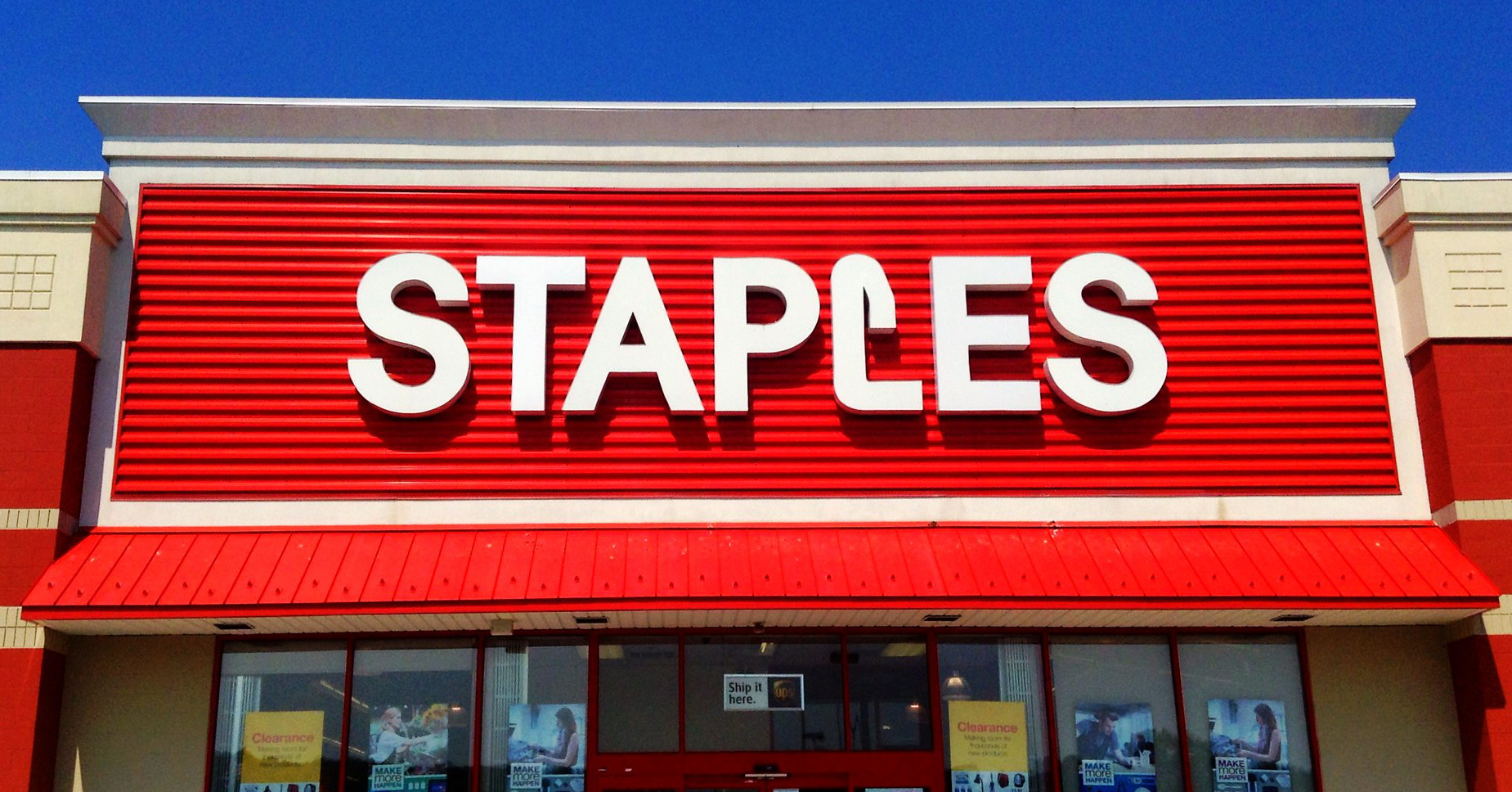What ChatGPT’s New Shopping Feature Means for Marketers
If there’s one topic every marketer is thinking about, it’s AI.
Our team prides itself on staying curious, so after OpenAI announced shopping was coming to ChatGPT, I found myself deep in the ChatGPT subreddit.

One Redditor shared a surprising discovery, and naturally, I wanted to try it myself. We were about a week away from the Real ID deadline, so I asked ChatGPT if I could board a domestic flight using my passport instead of a Real ID.

Great news for me; I’ve booked a spontaneous trip and there are no Real ID appointments for months. Without a second prompt, ChatGPT offered its answer—and then added something unexpected:

What stood out immediately was the disclaimer at the bottom: ChatGPT chooses these products without any outside influence.
Currently, there are no ads on any major AI platforms. But it’s no surprise that OpenAI would want shopping built into ChatGPT, especially after the impact AI had on the 2024 holiday shopping season. With ChatGPT handling over a billion web searches per week, the real question for marketers is: How do you become the product that shows up?
OpenAI isn’t alone here. Perplexity launched a shopping assistant last year, and Microsoft’s CoPilot just rolled out their own version, which alerts users to price changes and allows in-app checkout, similar to ChatGPT.
So what does this mean for marketers?
I asked ChatGPT how these shopping results were selected.

It explained that it pulls real-time information via web search tools and, in many cases, includes ads, product recommendations, or widgets. But the line that leapt off the screen was the “why” behind the recommendations:
“The sites providing travel ID guidance also had travel product listings on the page.”
In other words, what’s old is new again: content is still king. But not just any content—killer content that’s well-formatted, useful to the audience (not just your brand), and structured in a way that can be easily found and surfaced by ChatGPT.
Of course, the product is still new. The Verge already reported issues with pre-orders and high-demand items like the Switch 2. But the bigger takeaway is this: if AI platforms are going to be the place consumers turn to for answers instead of search engines, marketers must learn how to be the answer.
And that starts with understanding one thing: schemas.
Marketers who want their content discovered in AI platforms like Google’s SGE, Bing Copilot, and ChatGPT need to understand one thing: schemas are the nutrition labels of the internet.
In the same way that you use nutritional labels to know what food to buy, watching for salt, sugar, or protein. Schemas tell the AI what’s inside your content what kind of page it is, who wrote it, what it’s about, and how it connects to the rest of the web.
Here’s a quick primer you can hand to a dev or drop into a strategy session.
1. What is Schema Markup?
Schema markup is extra code (usually JSON-LD) that sits on your webpage to describe its contents in a way AI understands. Think of it like metadata with a shared vocabulary (schema.org) that search engines and AI bots rely on.
Organization schema tells the AI who you are.
Article or BlogPosting schema frames your content for citations.
Product schema powers recommendations in generative shopping tools.
2. Why Schemas Matter More Than Ever
Disambiguation: AI needs help figuring out if you’re “Apple Inc.” or “apple the fruit.” Schema makes that possible.
Inclusion in AI Overviews: Google’s AI and Bing’s “Deep Dive” use schema to decide which content makes the cut.
Efficiency: AI reads schema faster and more accurately than raw HTML. Structured data = cheaper for the model to process.
Future-proofing: Schema.org is constantly evolving to meet AI’s needs. Updating your schemas quarterly keeps your content relevant.
4. How to Implement
Schema Type Why it Matters
Organization Builds brand credibility and shows logo in search results
Article/BlogPosting Gets your headlines and authors cited in AI summaries
FAQPage Shows up in “People also ask” and AI-generated FAQ modules
Product Enables prices/specs to be pulled into AI shopping suggestions
HowTo/Recipe/Event Highly templated, often promoted by AI into step-by-step cards
[table id=schema /]
3. Five Schemas That Make You Findable
Use JSON-LD format
Include @id and sameAs links
Validate via Google Rich Results Test
Monitor updates in Search Console
Refresh quarterly
TL;DR
Schema markup is the nutritional label for your content. Just like food labels help people understand what’s inside a product, schema helps AI systems understand what’s on your page. The clearer and more accurate your markup, the more likely your content is to be surfaced, cited, and trusted in AI-generated search results. Label your content well, keep it fresh, and make it readable because well-fed AI leads to well-informed users.
Watch this space for more insights on the usage of AI and how it can enhance search results for your school. Contact us today if you’re ready to discuss how Advance Education can help strengthen and amplify your enrollment marketing efforts.
Learn more about how we can help you adapt to the evolving marketing landscape and ramp up your efforts.
Share This Story
February 27, 2026
Travel inspiration has always been visual, yet the nature of those visuals is evolving quickly. With Google’s introduction of Nano Banana 2, image generation is becoming more contextual, blending AI understanding with real-time information like weather, lighting, and environmental cues. The result is imagery that feels less imagined and more experiential, offering travelers a preview of how a place might feel [...]
February 22, 2026
In Blade Runner, based on Philip K. Dick’s Do Androids Dream of Electric Sheep?, the emotional tension hinges on a simple idea: what if artificial beings had memories like ours? What if they carried experience, longing, and narrative continuity? We are tempted to project that same idea onto large language models. We shouldn’t. There’s a growing conversation about “AI memory [...]
February 20, 2026
If you’ve been on the internet this week, you’ve probably seen one recurring theme: Staples. More specifically, Staples’ response to an employee now known as the “Staples Baddie.” For the last decade, brands, and plenty of DMOs, have treated “brand voice” like the engine of the machine. Nail the tone. Polish the copy. Standardize the look. That worked. Until [...]





 Ad Choices
Ad Choices